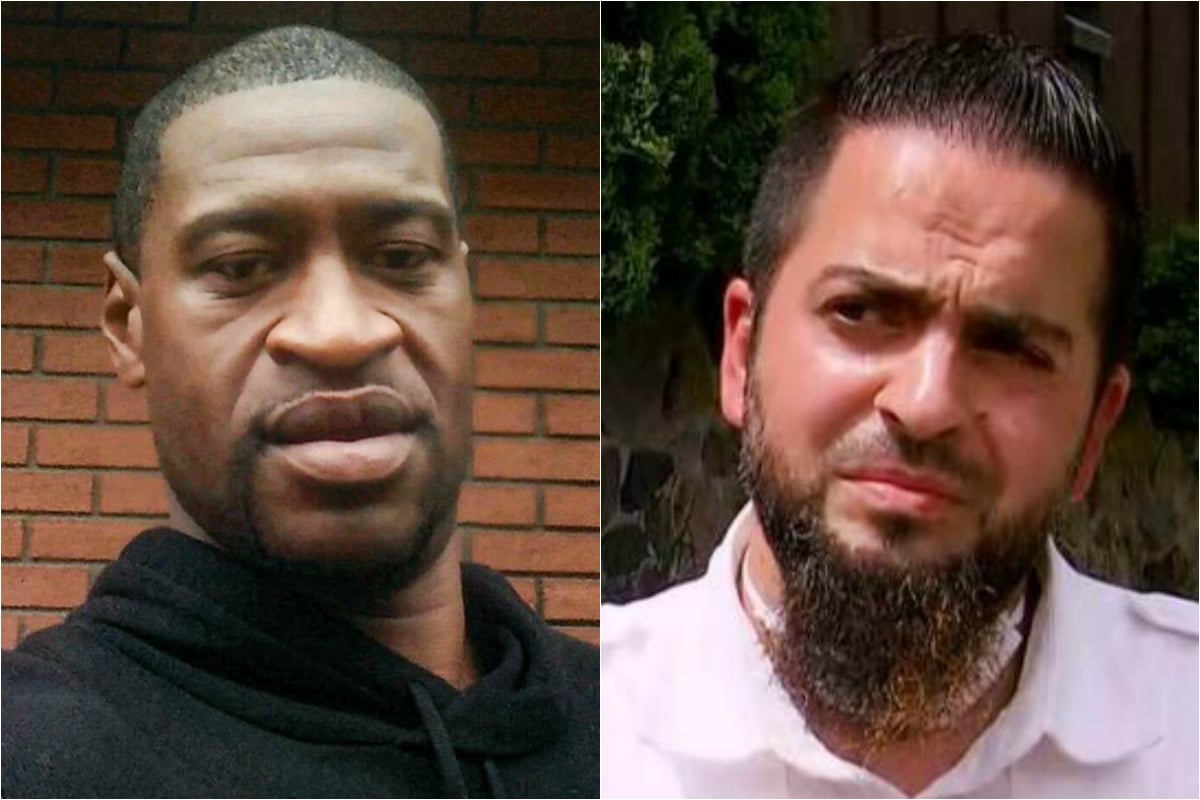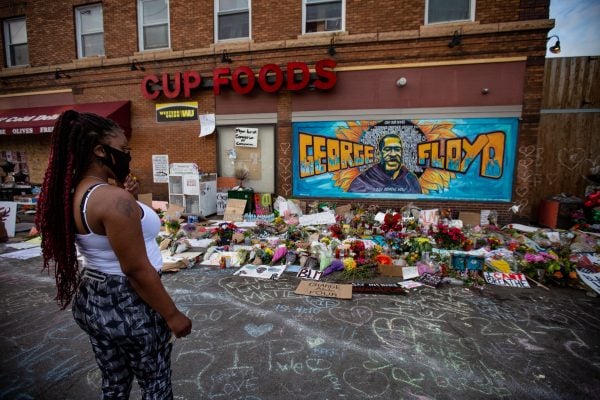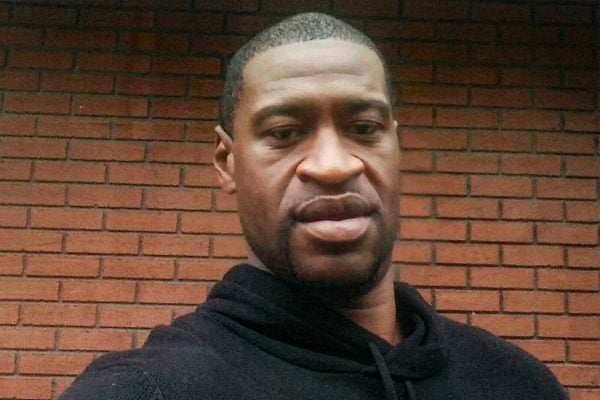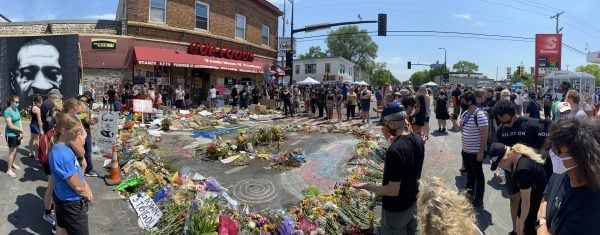
At 8.01pm on May 25, a 17-year-old employee of Cup Foods, a street store in Minneapolis, called the local police on a man named George Floyd.
On the phone to 911, the employee accused the 46-year-old man of buying cigarettes with a fake $20 bill.
A transcript of the police call, obtained by The New York Times, shows the dispatcher specifically asked the caller if the man was “white, black, Native, Hispanic, Asian?”
“Something like that,” the teenage employee replied.
“Which one? White, black, Native, Hispanic, Asian?” the dispatcher pressed.
“No, he’s a black guy.”
Upon arriving at the scene, police officer Derek Chauvin – one of four who showed up – arrested Floyd, before holding him down with a knee on his neck for almost nine minutes, as Floyd pleaded: “I can’t breathe.”
Floyd died and Derek Chauvin has since been charged with second-degree murder.



